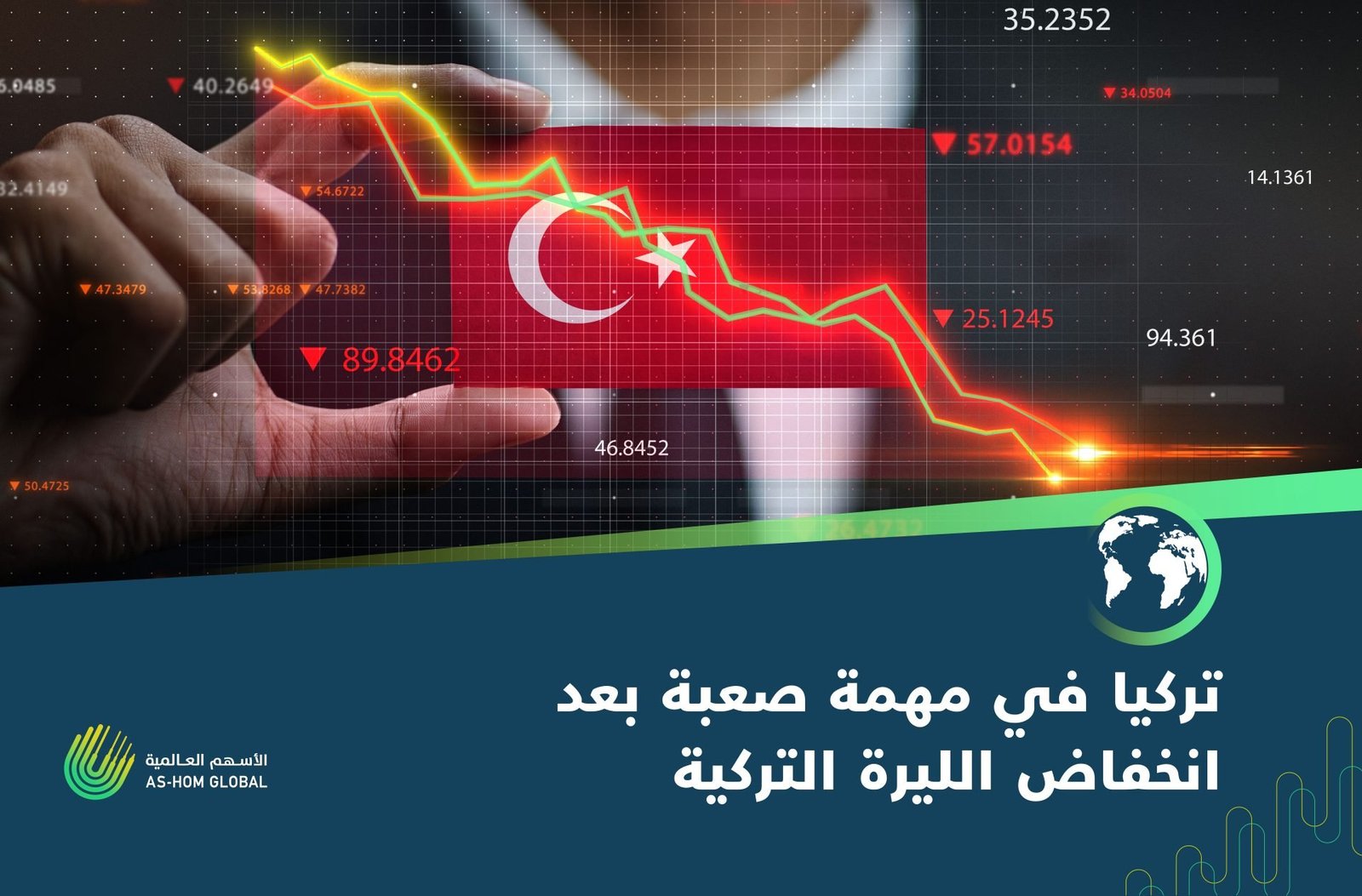Türkiye is in a difficult task after the decline of the Turkish lira
The suffering of the Turkish lira continues since the beginning of its decline in 2021, following a series of interest rate cuts by the Turkish Central Bank.
And the impact of global openness after the ban imposed by the countries of the world during the spread of the Coronavirus on the economy of the countries of the world, in addition to the high demand for products and the problem of supply chains, so that the world finds itself facing a state of inflation.
As the central banks of the countries of the world rushed to curb inflation by raising interest rates, which started from the US Federal Reserve on March 16, 2022.
The value of the Turkish lira decreased by 6% on Wednesday 07-06-2023, which is the largest decline since 2021 It is reported that the lira began to decline gradually since August 18, 2022, after the interest rate decreased from 14.0% to 13.0%.
Interest is the biggest enemy
The current president, who was re-elected for a second term, "Recep Tayyip Erdogan," considers interest to be the biggest obstacle to development and investment, and even described himself as an "enemy" of interest and that it is an evil that must be eliminated.
It appears, through statements circulated by the Turkish government, that the return of "Muhammad Şimşek" serves as a cover for an economic adventure undertaken by Turkish President Recep Tayyip Erdogan, against the prevailing theories in the modern economy, especially those that explain the relationship between interest rates and inflation, as the pressure exerted by the Turkish president caused That prompted the central bank to tweet out of the flock during the period of inflation, while the central banks of the countries tended to raise interest rates in order to curb inflation.
He cut the main interest rate from 24% in 2018 to the current level of 8.5%.
These policies pushed the inflation rate in Turkey, which is already suffering from a series of economic crises, to exceed the level of 85% in 2022, at a time when central banks around the world were tightening their belts to enter a cycle of monetary tightening and raising interest rates The Turkish Central Bank alone continues to cut interest rates.
Back to basic logic
After the election of Turkish President Tayyip Erdogan for a second term on May 28, 2023, he began to form his cabinet and appointed a number of ministers, the most important of whom was "Muhammad Simsik" economic policies to ensure the predictability of their consequences.
Turkish authorities now hope that foreign investors will return after fleeing en masse for years, but market watchers warn that Erdogan has turned to traditional politics in the past and changed his mind soon after.
